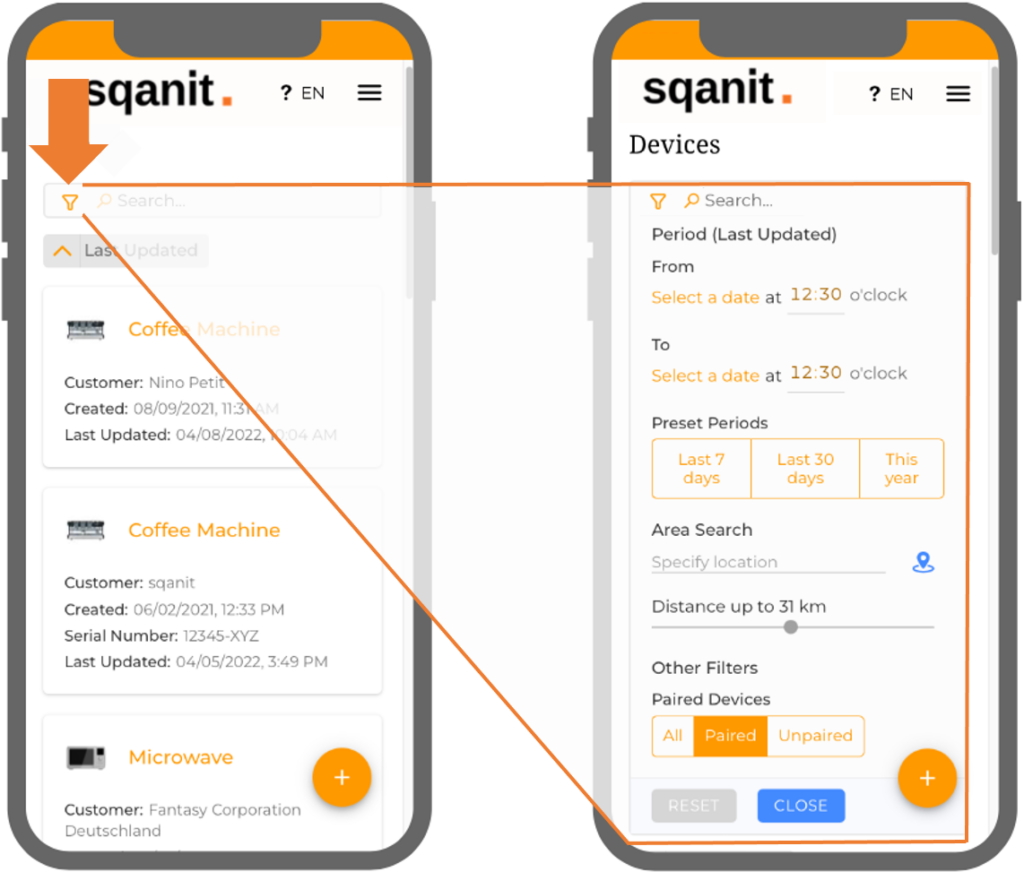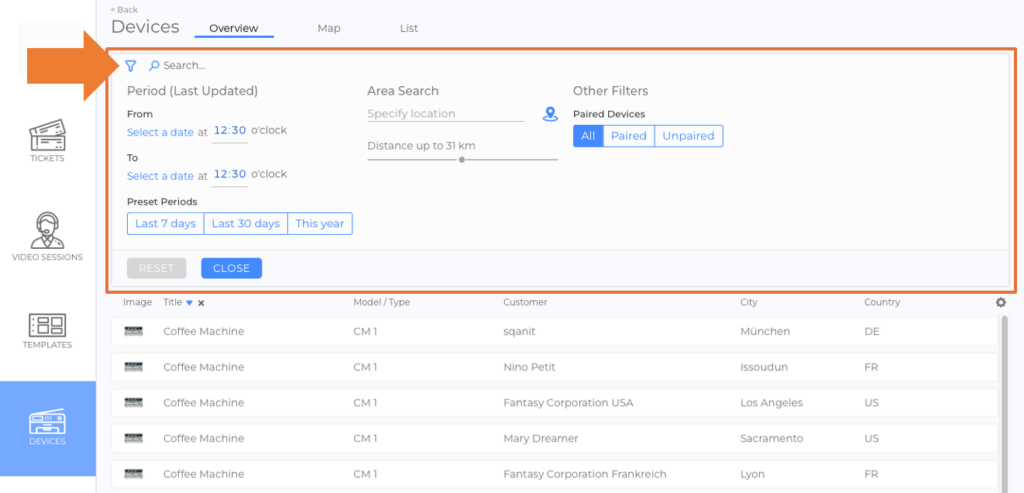Definition:
Filters are used to narrow down lists of items based on specific criteria, making it easier for users to find relevant information within the platform.
Behavior:
- Default Filters:
- Some lists have default filters applied automatically to streamline the user experience.
- For example:
- In the Mobile Dashboard, sections like Offers, Tickets, and Video Sessions are filtered by default to show only items related to the logged-in user.
- Saved Filters:
- Users can save filters for quick access in the future.
- A saved filter can be set as a favorite filter, meaning it will be applied by default when opening the list.
- Saved filters are account-specific, ensuring each user’s individual preferences are maintained.
- Filtered Downloads:
- When a list is filtered, users can download the filtered version of the list, allowing them to export only the relevant data.
Usage:
- To add or remove filters, click the funnel icon in the search bar.
- Select or deselect filter options based on your preferences to customize the displayed list.
- Save frequently used filters and set a favorite filter to streamline future workflows.
Key Benefits:
- Efficiency: Saves time by reducing the number of irrelevant items displayed in lists.
- Customizability: Users can tailor filters to their needs, ensuring they only see what’s most relevant to their work.
- Default Setup: Pre-applied filters (e.g., in the Mobile Dashboard) ensure the interface is immediately user-friendly.
- Saved Preferences: Saved filters and favorite filters allow for streamlined workflows and personalized setups.
- Export Options: The ability to download filtered lists provides users with quick access to relevant data in an external format.


Was this article helpful?
YesNo
